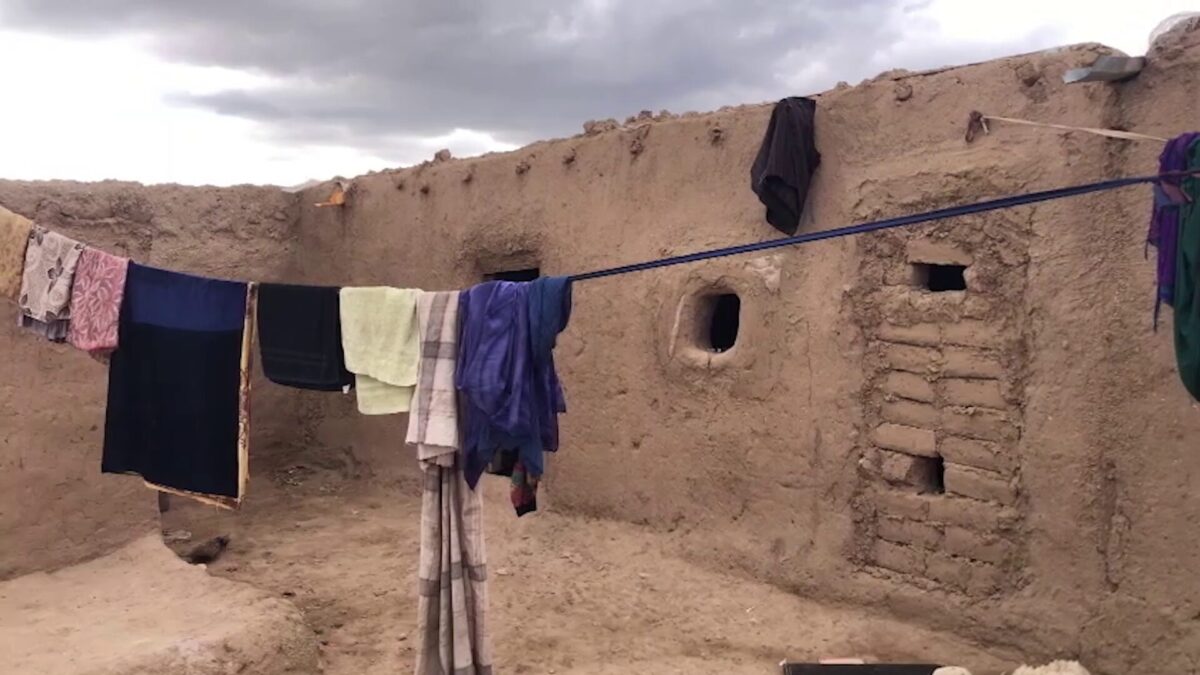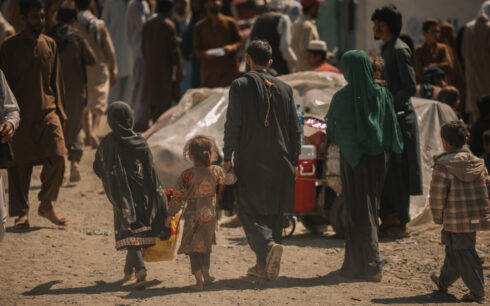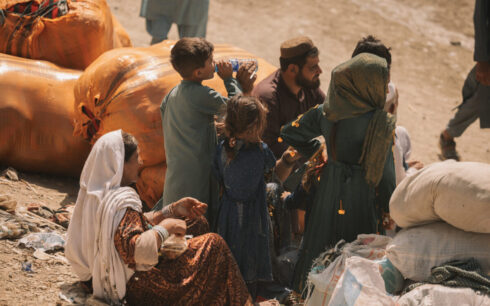KANDAHAR, Afghanistan — As the deadline set by the Pakistani government for undocumented Afghan migrants to leave the country draws to a close, families recently deported say Eid al-Fitr has lost its meaning amid the harsh realities of displacement and poverty.
In a makeshift camp on the outskirts of Kandahar, Inamullah, a father of seven, says he cannot even afford a pair of shoes for his children after being forced to return from Pakistan.
“By God, brother, we have nothing,” Inamullah said. “I can’t buy anything for my children.”
Once a time of celebration and joy for Afghan families, especially children, this year’s Eid is marked by deprivation. Inamullah’s son, Sadiq, looks down at his worn clothes and says he has no shoes, no clean outfit, and nothing to mark the occasion.
“I don’t have shoes, I don’t have clothes, I don’t have a jumper… I have nothing for Eid,” the boy said softly.
Their temporary shelter is one of dozens of camps housing returnees across southern Afghanistan. Many families, struggling with a lack of income, food, and basic necessities, say they are unprepared for the holiday and see little to celebrate.
Sardar Wali, another returnee, echoed the despair. “All our children are in bad condition,” he said. “You’ve seen our house — there’s nothing here. We have no preparation for Eid, nothing to do, and nothing to give.”
The Pakistani government has given Afghan migrants in Islamabad and Rawalpindi until March 31 to leave voluntarily. With the deadline just one day away, authorities expect a surge in returns over the coming days.
According to the United Nations High Commissioner for Refugees (UNHCR), Pakistan still hosts more than 2.1 million Afghan nationals. Since late 2023, nearly 850,000 Afghans have returned or been expelled.
International human rights organizations, including Amnesty International, have condemned Pakistan’s mass deportations, calling them a violation of international law and a breach of the principle of non-refoulement, which prohibits the forced return of individuals to places where their lives or freedoms could be at risk.
For families like Inamullah’s, the consequences of displacement are immediate and stark — not just economic, but deeply emotional. As one parent after another in the camp expressed, for their children, this Eid is not a time of joy but a painful reminder of all they have lost.





